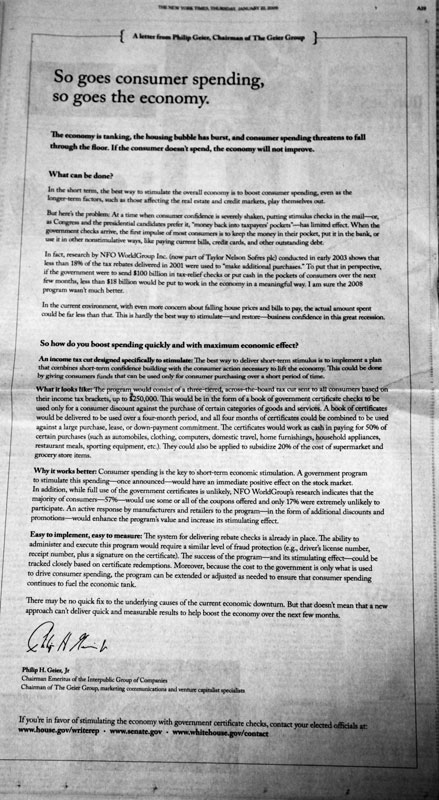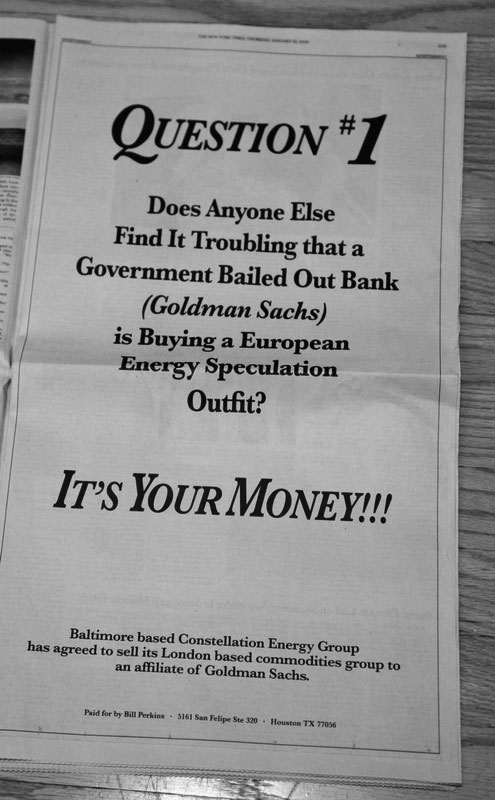Look carefully, and it is really the birth of the modern West that we see taking place here: snippets of news and sensation helped define a shared experience of the past and present, as political debates laid the foundations of democratic culture. If the Reformation is often credited with having turned the West toward the Enlightenment, another such force must be the growing taste for news and its multiple retellings. While other cultures were arguing over the interpretations of sacred texts, England’s was arguing over the nature of government in print. We are the beneficiaries.
The exhibition itself could have been much more clear in its chronological and thematic organization, particularly because the knotty politics of 17th-century England — centering on its civil wars — are treated as if they were far more familiar than is the case, but these documents repay the patience of careful reading.
When Sir Walter Raleigh was convicted of treason and executed in 1618, his eloquent speech on the scaffold was reported not by newspapers — which had not yet evolved — but in private written accounts. The real revolution came in the 1620s under the influence of “corantos” imported from Amsterdam, which provided the main news of the week. The corantos (which are still recalled in the names of newspapers, like The Hartford Courant) also inspired opposition from the government over their reports of troop movements during the Thirty Years’ War, leading to censorship and even imprisonment.
But the demand for news — and opinion — increased. Press censorship collapsed with the beginning of the civil wars of the 1640s, but the debates of this era were so intense and so much a part of public consciousness that news publications became instruments in the political battles between monarchists and parliamentarians. Newspapers were counterfeited, imitated, mocked and attacked. Parliament tried to reimpose censorship in 1643, and the poet John Milton wrote his famous speech demanding “Liberty of Unlicenc’d Printing.” But newspapers, complained Sir Roger L’Estrange, an ardent monarchist, make “the multitude too familiar with the actions and counsels of their superiors.” He created The Observator, shown at the Folger — the “pre-eminent Tory journal of its day.”
Category: Politics
“Government Checks for Consumer Spending?”

Philip Geier’s 232K PDF advertisement in today’s fishwrap edition of the New York Times. Use the grandkids credit cards to spend now…..
Our Tax Dollars Supporting Goldman Sach’s Latest Acquisition

Bill Perkins is at it again in the New York Times. More Bill Perkins activism on the bailout/splurge, here.
TARP Funds: State by State Analysis
In unveiling its bank-share purchase program, the Treasury Department required nine of the nation’s largest financial-services companies to sell a total of $125 billion in preferred stock to the government, and said an additional $125 billion in stock could be bought from other firms on a voluntary basis. Below, see a list of participating companies.
600 Private Jets Expected for the Obama Nomination; 2X the 2004 Number
For the wealthy, Tuesday’s inauguration is the dream party: a chance to rub elbows with the similarly rich and powerful, to become part of a historic moment, and (most importantly), to get access to the man of the moment.
It also is a chance to drown their financial sorrows in an emotional wave of optimism.
Yet it may come as a surprise that at a time of financial crisis and Green correctness, many of the wealthy are choosing to arrive by private jet.
According to an article in Bloomberg, as many as 600 private jets were expected to touch down in D.C. for the inauguration. The runway at Washington Dulles was closed Saturday to allow as many as 100 small planes to park. And the Metropolitan Washington Airports Authority said it expected a total of 500 small jets to land from Jan. 16 through Jan 21.
“That would set a record, topping the 300 the airport accommodated for President George W. Bush’s 2004 inaugural,” an Airports Authority says in the article.
A Crackdown on Vietnam’s Press
LIKE their counterparts in China, Vietnam’s ruling Communists seem even more than usually sensitive to criticism. This month two leading reformist newspaper editors, Nguyen Cong Khe, of Thanh Nien (Young People), and Le Hoang, of Tuoi Tre (Youth Daily), were both told that their contracts would not be renewed, apparently because they were too good at their jobs. Their papers have assiduously uncovered official corruption, most notably with a joint exposé in 2006 about a crooked transport-ministry road-building unit. The journalists behind that story were punished by a Hanoi court last October for “abusing democratic freedoms”. Now it looks as if their editors, too, have been culled. A spate of other arrests last year suggests a wider clampdown.
AFP Read all about it (or not)Ever since the start of doi moi (renewal) reforms in 1986, economic liberalisation has been accompanied by a gradual political loosening. There are around 700 newspapers in circulation. All are government controlled, but some are relatively outspoken. Meanwhile, a young, tech-savvy population has taken to reading opinion on the internet, in blogs penned by pseudonymous authors. These commentators are questioning government policy with increasing zeal. A day after the two journalists were arrested last year, their newspapers openly attacked the government’s actions, hitting a few raw nerves. The government now also wants to curb the pesky bloggers, announcing rules in December restricting politically sensitive content on the internet.
The Case for Overhauling a U.S. Tax System Even Congress Doesn’t Understand
“The monopoly on good ideas does not belong to a single party,” President-elect Obama reportedly told congressional leaders Monday during a private meeting about an economic stimulus package. “If it’s a good idea, we will consider it.”
When it comes to taxpayer money—raising, spending, and occasionally deigning to return it—neither party in Congress has demonstrated particularly good ideas lately. The majority of lawmakers seem to believe that stimulating the economy means expanding recurring welfare programs, plowing money into pet projects of only limited or short-term use, and bestowing inadequate, selective tax cuts.
But if Obama is looking for ideas, he might consult with Nina Olson, the national taxpayer advocate at the IRS. In her annual report to Congress, released yesterday, Olson makes a persuasive case for overhauling the U.S. tax system.
“Counter Blog”
Bloggers: If you suddenly find Air Force officers leaving barbed comments after one of your posts, don’t be surprised. They’re just following the service’s new “counter-blogging” flow chart. In a twelve-point plan, put together by the emerging technology division of the Air Force’s public affairs arm, airmen are given guidance on how to handle “trolls,” “ragers” — and even well-informed online writers, too. It’s all part of an Air Force push to “counter the people out there in the blogosphere who have negative opinions about the U.S. government and the Air Force,” Captain David Faggard says.
Over the last couple of years, the armed forces have tried, in fits and starts, to connect more with bloggers. The Army and the Office of the Secretary of Defense now hold regular “bloggers’ roundatbles” with generals, colonels, and key civilian leaders. The Navy invited a group of bloggers to embed with them on a humanitarian mission to Central and South America, last summer. Military blogger Michael Yon recently traveled to Afghanistan with Defense Secretary Robert Gates.
In contrast, the Air Force has largely kept the blogosphere at arms’ length. Most of the sites are banned from Air Force networks. And the service has mostly stayed away from the Pentagon’s blog outreach efforts. Captain Faggard, who’s become the Air Force Public Affairs Agency’s designated social media guru, has made strides in shifting that attitude. The air service now has a Twitter feed, a blog of its own — and marching orders, for how to comment on other sites. “We’re trying to get people to understand that they can do this,” he tells Danger Room.
Doctor Side Pay from Drug Companies
Barry Fox is in big demand. The UW infectious disease specialist had lucrative side jobs working for seven different drug companies in just one year, including one that paid an undisclosed sum of $20,000 or more, records show.
Fox is one of dozens of University of Wisconsin-Madison physicians who also work for drug companies. Some sit on advisory boards; others do promotional or educational work. Fox, for example, did promotional work involving an antibiotic for one company in 2007, working five days for what appears to be at least $2,000 a day, his disclosure form says.
Doctors’ moonlighting for drug companies – though legal – is coming under increased scrutiny, both at UW and across the country. This month, the trade group Pharmaceutical Research and Manufacturers of America enacted a voluntary ban on company gifts of branded pens, sticky notes and other items and dinners for doctors. Also of special concern are university physicians who are sought by drug companies because of the influence and respect they wield with colleagues practicing in communities.
Most patients have no knowledge of the side work. Even the university is not aware of exactly how much its doctors earn from drug and medical device companies; they are required to disclose only ranges of income received, and no range beyond $20,000.
More than 30 UW physicians exceeded the $20,000 threshold in 2006 and 2007, records show. At least one of those doctors made at least 20 times that amount in previous years – more than $400,000, paid by a maker of orthopedic implants. But that became known in 2006 only because of records filed in a lawsuit.
Last week, for the first time, signs went up in a handful of UW Health clinics alerting patients about doctors’ drug company ties. In addition, the dean of the medical school said the university’s policies need to be shored up. Among other things, the medical school might begin requiring doctors to specify how much they are paid, said Robert Golden, head of the UW School of Medicine and Public Health.
Further, U.S. Sens. Herb Kohl (D-Wis.) and Chuck Grassley (R-Iowa) have introduced a bill that would require drug and medical device companies to disclose payments made to physicians. Kohl said it would be best to ban the practice, noting that the medical industry spends $20 billion a year in payments and gifts to doctors.
“The relationship between the doctor and patient is frayed,” Kohl said.
Vietnam imposes new blogging restrictions
AP:
The rules ban any posts that undermine national security, incite violence or crime, disclose state secrets, or include inaccurate information that could damage the reputation of individuals and organizations, according to a copy of the regulations obtained Wednesday by The Associated Press.
The rules, which were approved Dec. 18, attempt to rein in Vietnam’s booming blogosphere. It has become an alternative source of news for many in the communist country, where the media is state-controlled.
The new rules require Internet companies that provide blogging platforms to report to the government every six months and provide information about bloggers on request.
The companies are also required to prevent and remove content the government deems harmful.